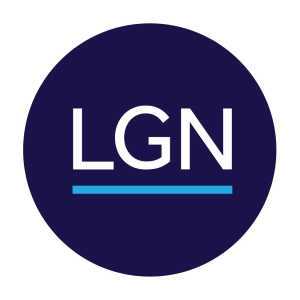LGN FEDERAL CORONAVIRUS UPDATE: APRIL 20
Democrats and White House Near Deal on New Relief Funding
Democrats and the Trump Administration are near an agreement for Congress to act this week on a deal as large as $500 billion to put more funding into a tapped-out small business aid program and provide money for coronavirus testing and overwhelmed hospitals. Treasury Secretary Steven Mnuchin and House Speaker Nancy Pelosi said Sunday the two sides were close to a deal, though various details remained to be worked out and the entire package still has to be translated into legislative text.
While the Senate has a pro forma session scheduled for Monday, leaders of both parties first would have to ensure no senator would object to the agreement in order to pass it by unanimous consent. That typically requires circulating legislative text. The Senate’s next scheduled session is currently set for Thursday; Senate Republicans are still reviewing the deal outline.
House Majority Leader Steny Hoyer sent a notice to lawmakers Sunday that the lower chamber could meet as soon as Wednesday to consider the legislation. Because an objection to unanimous consent is likely, Hoyer said the House would probably have to convene for a recorded vote. House Republicans were told during a conference call Sunday to expect to vote on the package Wednesday in Washington, and that the Senate likely would act before then.
Negotiations are focused on adding an additional $310 billion to the Paycheck Protection Program, designed to help small businesses keep workers on their payrolls as much of the country remains under stay-at-home orders. A separate program, the Economic Injury Disaster Loan, or EIDL, that provides financing and advances as grants of as much as $10,000 for businesses, would get $50-60 billion more. Both of those measures have wide bipartisan support.
The deal is also expected to include $75 billion of the $100 billion Democrats have demanded for hospitals, with a significant portion aimed at rural hospitals, as well as $25 billion for virus testing.
U.S. Not Testing Enough for States to Reopen
A gap is opening over how much daily Covid-19 testing is enough, with many public-health experts worrying that the current level could cost lives and even set back efforts to reopen. The Trump Administration says the U.S. is conducting 150,000 tests a day, the bulk of which are done by commercial labs and some by state public health labs. The president says that is enough for a phased re-opening, and over the weekend he praised states that have begun to do so.
However, experts say that number is low, obscuring the extent of the virus’s spread and leaving newly reopened states vulnerable to a new wave of infections. One estimate from the Yale School of Public Health says the U.S. would need the capacity of a million tests per day to be confident the outbreak is contained, roughly what the country now does in a week.
The administration addressed criticism about its approach to testing in an April 17 press conference, saying more than 1 million will be done a week and that it’s looking into helping labs address issues. “There is capacity out there,” said Deborah Birx, the U.S. State Department immunologist and one of the President’s top medical advisers. “It is our job working with the states” to make sure all the testing in the U.S. “is brought to bear.”
Drug Industry Coordinates Covid-19 Response with NIH
More than a dozen drug companies, including Pfizer, Johnson & Johnson, and Sanofi are coordinating their Covid-19 efforts with the National Institutes of Health to push out new treatments and vaccines. The public-private partnership plans to develop an international framework for prioritizing vaccine and drug candidates, streamlining clinical trials, coordinating regulatory processes across different countries, and using assets available among all collaborators to respond rapidly to both the current and future pandemics.
More than 300 clinical trials on Covid-19 are underway, and that number increases almost daily, a spokesperson for the Pharmaceutical Research and Manufacturers of America said last week. But more than 90% of drug candidates fail in the clinical trial stage, and there are concerns about manufacturers’ ability to scale up production to treat a worldwide pandemic once a vaccine or therapeutic becomes available.
NIH Director Francis S. Collins said the partnership aims to break down traditional boundaries in the biomedical research ecosystem to identify and prioritize the most promising therapies for clinical trials.
Nursing Homes Required to Report Cases, Hospitals Can Ease Services Back
Nursing homes will be required to report confirmed cases of Covid-19 to families, residents, and the CDC, according to a new directive issued yesterday by the Centers for Medicare and Medicaid Services (CMS). These data aren’t currently collected by the CDC, CMS, or FEMA. “Nursing homes have been ground zero for COVID-19,” said CMS Administrator Seema Verma in a press release.
Administrator Verma also announced new guidelines outlining how hospitals can gradually resume elective surgeries and other in-person services as social distancing measures ease. CMS officials said this transition should be done in coordination with local and state public health officials and while ensuring there is enough personal protective equipment and staff available.
FDA Encourages Recovered Covid-19 Patients to Donate Plasma
The Food and Drug Administration is encouraging recovered coronavirus patients to donate plasma to facilitate the development of and access to convalescent plasma, a treatment that the FDA says has the potential to lessen the severity or shorten the length of illness caused by Covid-19. The FDA says one donation has the potential to help as many as four patients.
Convalescent plasma is an antibody-rich product made from blood donated by people who have recovered from the disease caused by the virus. The FDA has launched a web page to guide recovered Covid-19 patients to local blood or plasma collection centers to discuss their eligibility and potentially schedule an appointment to donate.
